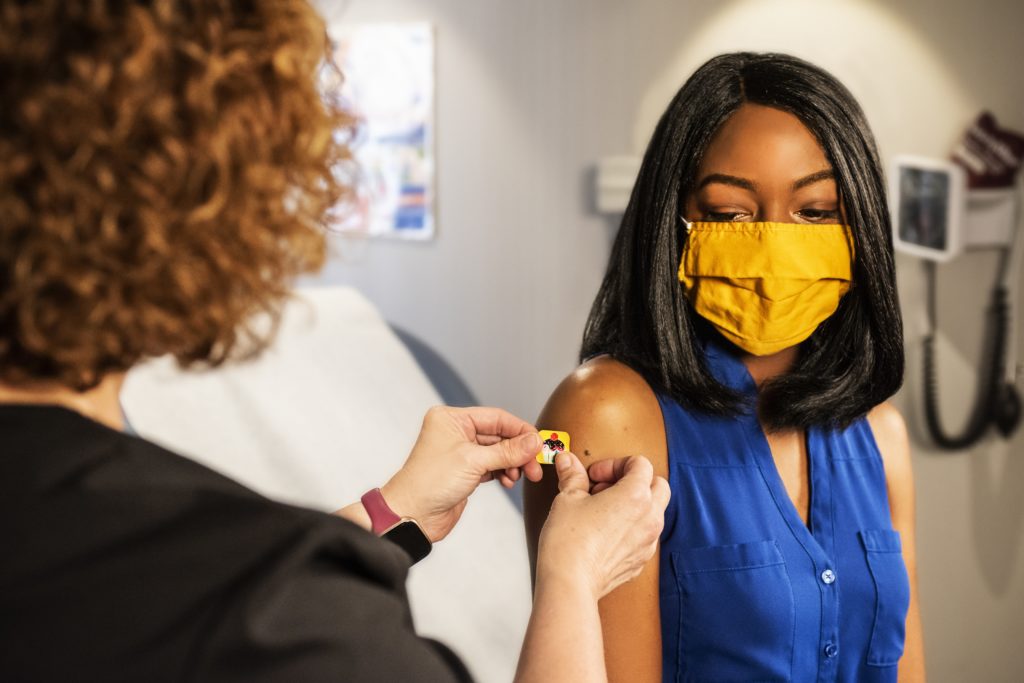Researchers from the University of Oxford have identified which vaccinated people are at greatest risk from severe Covid-19 leading to hospitalisation or death, from 14 days after the second dose of vaccination, when substantial immunity should be expected.

The research used the QCovid tool, developed in 2020 with support from the NIHR Oxford Biomedical Research Centre, which directly influenced UK policy in February 2021, adding 1.5 million people in February 2021 to list of those advised to shield.
In a paper published in the British Medical Journal, the research team, led by Prof Julia Hippisley-Cox of the University’s Nuffield Department of Primary Care Health Sciences, showed how they were able to identify groups more at risk of hospitalisation or death from Covid-19.
Using national linked datasets from general practice, national immunisation and SARS-CoV-2 testing, death registry and hospital episode data, The researchers analysed a sample of over 6.9m vaccinated adults, of whom 5.2m had both vaccines doses, which was representative of the UK population as a whole.
This sample included 2,031 COVID-19 deaths and 1,929 COVID-19 related hospital admissions, of which 81 deaths and 71 admissions occurred 14 or more days after the second vaccine dose.
Based on this, the researchers developed cumulative risk scores to calculate people’s risk of hospitalisation or death from Covid-19 following one, or two vaccination doses. These scores take into account factors including age, sex, ethnic group and the background rate of COVID infections, and in particular highlight an elevated risk to:
- Those who are immunosuppressed as a result of chemotherapy, a recent bone marrow or solid organ transplant, or HIV/AIDS
- People with neurological disorders, including dementia and Parkinson’s
- Care home residents, and those with chronic disorders including Down’s Syndrome
Prof Hippisley-Cox said: “The UK was the first place to implement a vaccination programme and has some of the best clinical research data in the world. We have developed this new tool using the QResearch database, to help the NHS identify which patients are at highest risk of serious outcomes despite vaccination for targeted intervention. This new tool can also inform discussions between doctors and patients about the level of risk to aid shared decision making.”
The researchers report that there were relatively few COVID-19 related hospitalisations or deaths in the group who had received the second dose of any vaccine, meaning that the study lacked the statistical power to determine if the groups listed above are more, or less, at risk following a second vaccine dose compared with following the first dose.
Furthermore, they did not distinguish between type of vaccination offered, and acknowledge that their study may have been limited by factors such as exposure, as occupation, for example, is not something that is often recorded in general practice or hospital records.
Aziz Sheikh, Professor of Primary Care Research & Development and Director of the Usher Institute at The University of Edinburgh and a co-author of the paper, said: “This enormous national study of over 5 million people vaccinated with two doses across the UK has found that a small minority of people remain at risk of COVID-19 hospitalisation and death. Our risk calculator helps to identify those who remain most at risk post-vaccination.
“Our new QCovid tool, developed with the help of experts from across the UK, has been designed to identify those at high risk who may benefit from interventions such as vaccine booster doses or new treatments such as monoclonal antibodies, which can help reduce the risk of progression SARS-CoV-2 infection to serious COVID-19 outcomes.”
The researchers hope that these data can be used in a variety of health and care settings to inform those more likely to be at risk, and potentially help to prioritise those identified for further trials of vaccines, boosters or future preventative therapies.
Prof Hippisley-Cox concluded: “Individual risk will always depend on individual choices as well as the current prevalence of the disease, however we hope that this new tool will help shared decision making and more personalised risk assessment.”